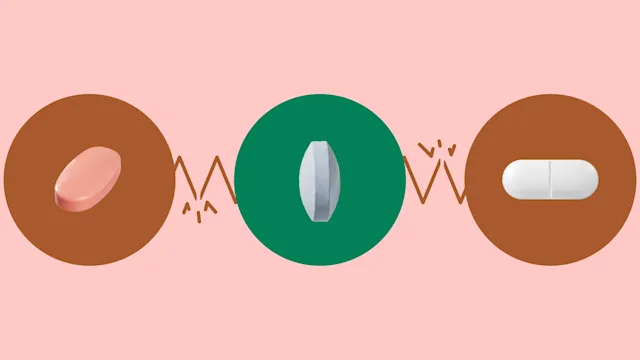Perfecting your migraine treatment regimen may take some time. Everyone who gets migraines may struggle with a unique set of triggers or react differently to medicines. Learning the common pitfalls of migraine treatment might help you find your personal treatment regimen faster.
DON’T take acute migraine treatment more than 10 days a month.
Acute migraine treatment refers to medicines that help stop or lessen the severity of a migraine that has already started. For example, triptans and ergots are acute migraine treatments.
However, if you find yourself needing these medicines more than two or three times a week, you should talk to your doctor about other options. “Acute migraine medications, when taken too frequently, can cause something called medication overuse headache,” says Sylvia Mohen, MD, Neurologist in New York City.
“The issue with medication overuse is it can actually make your overall migraines worse. You can go from having a few migraines a month to having 15-plus migraines a month just by overusing your acute treatment,” says Dr. Mohen. This can even include frequent NSAID use.
DO keep a consistent sleep schedule.
“Sleep deprivation is a major migraine trigger for a number of people. Sometimes even underlying sleep disturbances can be contributing to your migraine, like underlying sleep apnea,” says Dr. Mohen.
Sleep deprivation is a common problem to watch out for, but it’s also important to know that sleeping too long can also trigger migraines in some people.
DON’T ignore early migraine symptoms.
“It's important to not ignore early warning signs of a migraine because it may progress into a more severe intractable migraine,” says Dr. Mohen. Taking your acute migraine treatment as soon as warning signs appear can help lessen the severity of a migraine. In some cases, it may even prevent it entirely.
Learn more about how to treat migraines early.
DO talk to your doctor if your treatment isn’t working.
It’s important to keep in mind that there are many treatment options available for migraines. That means you don’t have to settle for an option that’s not meeting your expectations.
- PropranololGeneric Inderal
- ImitrexSumatriptan
- AmitriptylineGeneric Amitid and Amitril and Elavil and Endep
Additionally, your doctor can help you catch any challenges that might be affecting your treatment success. “Are you taking it routinely every day? Is it causing side effects? Are you just still having a lot of migraines despite taking the medication?” says Dr. Mohen. “There may be different ways to intervene depending on what's going on.”
A migraine-friendly lifestyle can also help your treatment success. This includes eating regularly, staying hydrated, exercising, limiting screen time, and following a consistent sleep schedule, according to Dr. Mohen. Learn more lifestyle tips for treating migraines.
Sylvia Mohen, MD, is a Neurologist at New York Neurology Associates, P.C.
References
American Headache Society. (n.d.). What to do when migraine treatment fails.
American Migraine Foundation. (2017). Top 10 migraine triggers and how to deal with them.
American Migraine Foundation. (2017). Photophobia (light sensitivity) and migraine.
Schwedt, T.J. (2024). Acute treatment of migraine in adults. UpToDate.
Schwedt, T.J., et al. (2024). Preventive treatment of episodic migraine in adults. UpToDate.

Why trust our experts?














